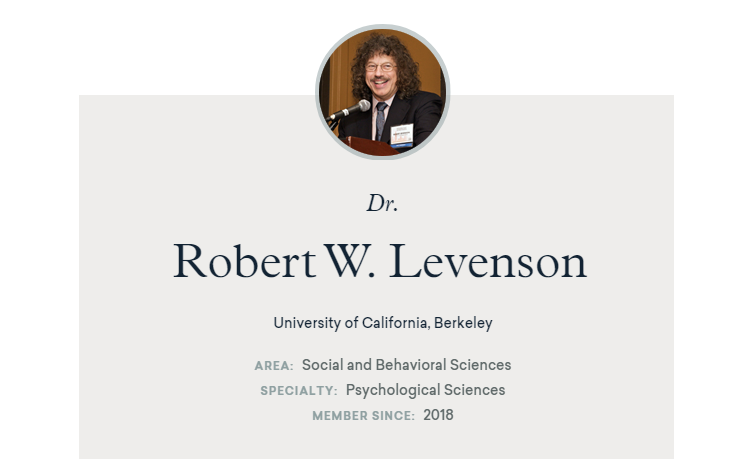March 8, 2022
Couples who connect in moments of positivity live longer, healthier lives

Hold back on the bickering. Couples who share sweet moments filled with humor and affection, and sync up biologically — two hearts beating as one — enjoy better health prospects and live longer than their more quarrelsome counterparts, suggests new UC Berkeley research.
The findings, recently published online in the Journal of Personality and Social Psychology, are based on laboratory observations of 154 middle-aged and older married couples as each engaged in an intimate conversation about a conflict in their relationship.
“We focused on those fleeting moments when you light up together and experience sudden joy, closeness and intimacy,” said study author Robert Levenson, a UC Berkeley professor of psychology.
February 16, 2022
In-home assistive technology prevents declines in sleep quality in caregivers for people with dementia
New UC Berkeley study finds that in-home assistive technology buffers against declining sleep efficiency for caregivers of people with dementia.
To learn more about the study, please watch this presentation by our staff member Darius Levan.
May 28, 2021
‘Eye in the Sky’ sensors reduce stress of in-home dementia care

New study shows that sensor-based monitoring systems in the homes of people with dementia help reduce their caregivers’ anxiety.
People caring around the clock for a parent, spouse or other loved one with dementia are at a high risk for clinical anxiety, depression, social isolation and even suicidal ideation, according to longitudinal research from UC Berkeley.
But thanks to a blend of artificial intelligence (AI) and behavioral science, relief may be on the horizon.
UC Berkeley psychologists have joined forces with People Power, a home healthcare tech company, to install networks of sensors that hook up to AI and smartphone technology in the homes of some 350 dementia patients nationwide.
December 8, 2018
Hang in there. As couples age, humor replaces bickering
Honeymoon long over? Hang in there. A new UC Berkeley study shows those prickly disagreements that can mark the early and middle years of marriage mellow with age as conflicts give way to humor and acceptance.
Researchers analyzed videotaped conversations between 87 middle-aged and older husbands and wives who had been married for 15 to 35 years, and tracked their emotional interactions over the course of 13 years. They found that as couples aged, they showed more humor and tenderness towards one another.
Overall, the findings, just published in the journal Emotion, showed an increase in such positive behaviors as humor and affection and a decrease in negative behaviors such as defensiveness and criticism. The results challenge long-held theories that emotions flatten or deteriorate in old age and point instead to an emotionally positive trajectory for long-term married couples.
July 2018
Professor Robert Levenson is elected to the American Academy of Arts & Sciences

Levenson contributed to his field in six areas of inquiry: emotion-specific autonomic physiology; emotion regulation; culture; marriage; life span development, and brain science. He shaped these fields with new measurement approaches, a commitment to studying ethologically rich behavior, and the training of a next generation of young emotion scientists, both within his lab and more broadly through several training programs that he has guided as Principle Investigator. In addition, Levenson has served as a charter member for the International Society for Research on Emotion and as charter member and fellow of the Association for Psychological Science. He has served as President of the Society for Psychophysiological Research and President of the Association for Psychological Science and is currently President of the Society for Affective Science and President of the Psychological Clinical Science Accreditation System. He has been honored with election to the Society of Experimental Psychologists; Distinguished Alumnus Award from Vanderbilt University; Mentor Award for Lifetime Achievement from the Association of Psychological Science; Distinguished Scientific Contributions to Psychophysiology Award from the Society for Psychophysiological Research, and William James Award for Lifetime Achievement in Basic Research from the Assocation for Psychological Science.
January 20th, 2017
Understanding the role of emotion in ageing
As the world’s population ages, it becomes more important to research how ageing affects the brain. Robert W. Levenson, a Professor at UC Berkeley, explains that while cognitive abilities decline with age, some emotional capabilities can actually improve. But more research is needed into diseases such as frontotemporal dementia, which does not impair the ability to think but causes people to lose their capacity for emotions such as disgust and embarrassment.
May 25, 2014
Professor Robert Levenson receives the APS William James Fellow Award
Robert W. Levenson is a recipient of the Association for Psychological Science (APS) William James Fellow Award for his lifetime of significant intellectual contributions to the basic science of psychology. Recipients must be APS members recognized internationally for their outstanding contributions to scientific psychology. Honorees are recognized annually at the APS Convention. “Levenson’s contributions to psychology in the field of emotion have exemplified two fundamental aspects of science: innovative, bold insights and paradigm shifts, as well as the incremental, data-fueled progression from which theories are constructed,” according to an APS announcement about the award.
“His pioneering research on emotion regulation is at once academically interesting and a critical foundation for therapists treating disorders of emotion. In addition to his outstanding scholarly work, Levenson has demonstrated unparalleled professional service. The epitome of the scholar/teacher ideal, Levenson channels the spirit of William James by effectively communicating fundamental concepts and encouraging scientific exploration and curiosity,” the announcement said.
May 26, 2013
Professor Robert Levenson receives the APS Mentor Award
The first APS Mentor Award was presented at the 25th APS Annual Convention in Washington, DC, May 23-26, 2013 to Professor Robert Levenson, Department of Psychology, University of California, Berkeley.
The APS Mentor Award is a new lifetime achievement award to recognize psychology researchers and educators who have shaped the future directions of science by fostering the careers of students and colleagues.
The award honors the importance of mentoring in the field as well as the dedication and impact of individuals with a distinguished record of teaching, advising, and encouraging students and colleagues who go on to have productive and influential research careers.
November 10, 2012
Decision making and emotion regulation in life-span transitions
BCRN held a workshop on “Decision-Making and Emotion Regulation in Life-Span Transitions” on November 8 and 9, 2012 at the David Brower Center in downtown Berkeley. The conference focused on two key processes, decision-making and emotion regulation, during two important life-span transitions, adolescence and late life. This focus reflects our view that adolescence and late life are key inflection points in the life span in which biological and social changes place unique demands on decision making and emotion regulation capacities. These also are times in development that provide unique opportunities for targeted interventions aimed at changing behavior. The long-term goal of the conference is to help build interdisciplinary research teams at Berkeley that will be able to pursue exciting research in the area of behavior change. The conference was supported by a grant from the National Institute on Aging (1R13AG043207-01).
MAY 21, 2009
IPSR/NIA Workshop on Advancing Integrative Psychological Research on Adaptive and Healthy Aging
This workshop, "Advancing Integrative Psychological Research on Adaptive and Healthy Aging," was organized by the Institute of Personality and Social Research at the University of California, Berkeley and the Division of Behavioral and Social Research of the National Institute on Aging/National Institutes of Health.
It took place at UC Berkeley on May 21, 2009, one day before the annual convention of the Association for Psychological Science (which was held in San Francisco on May 22-25, 2009). The workshop focused on advancing discussion in core emerging areas of psychological science in aging concerning emotional function, social relationships, and social behaviors. It highlighted novel approaches currently being taken in the field, and encouraged cross-talk and interaction between researchers in the field of aging and researchers in other areas of psychological science.
To learn more about the presenters, watch video's of the presentations, and view available readings please visit the IPSR-NIA Workshop website.
